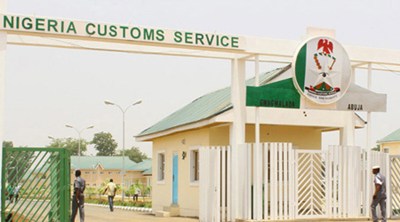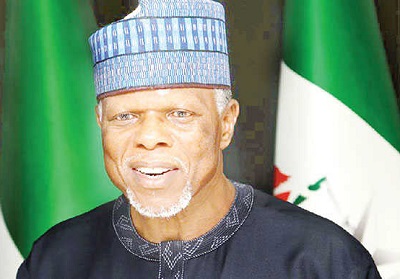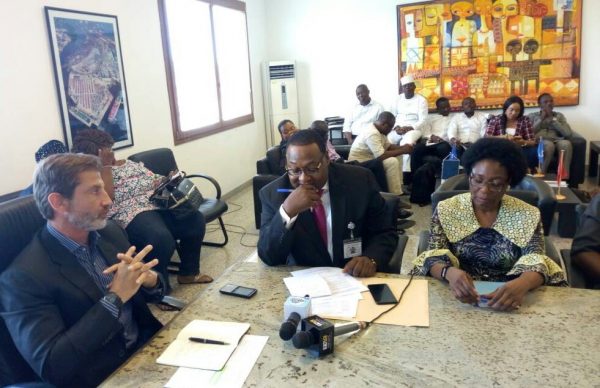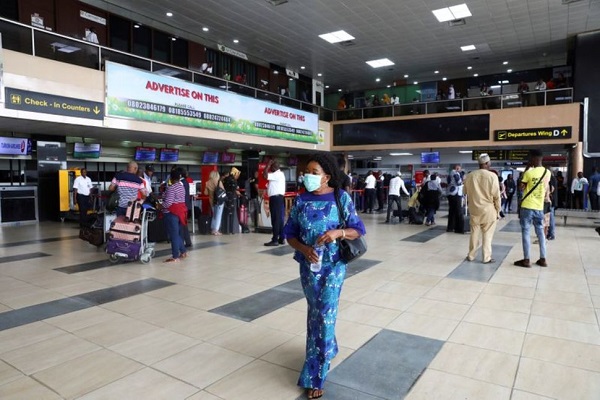Customs Launches Time Release Study, Begins Test Run At Tin Can Port
By Eric Ekpo
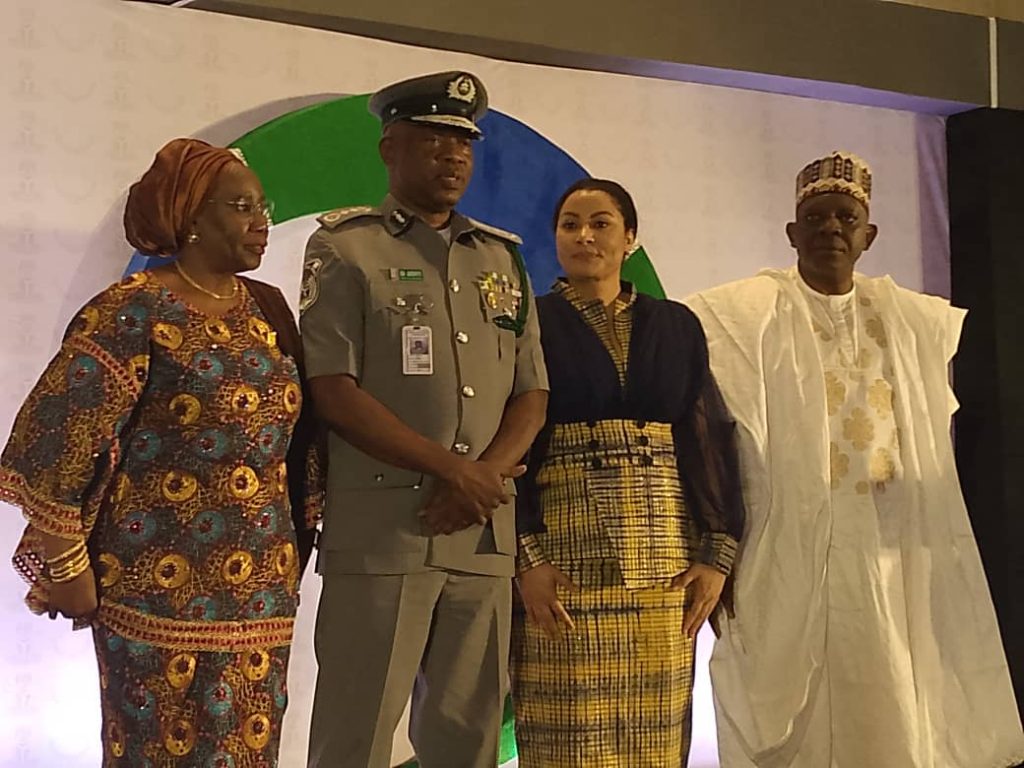
The Nigeria Customs Service (NCS) has launched a strategic and international recognized tool known as Time Release Study (TRS) developed for the purpose of improving trade facilitation and efficiency at the ports.
TRS is described as a systematic measure and standard way to measure the time taken to release cargo involving the Customs and other government agencies.
Comptroller General of the Service, Adewale Adeniyi disclosed at the launching on Thursday that the Tin Can Island ports command will serve as the pilot area for the tool.
Adeniyi said it is aimed at promoting trade facilitation in line with international standard, adding that it will optimize trade facilitation and assist stakeholders.
The CGC also said the Customs Service is well equipped to promote the tool, adding that when it succeeds in Tin Can Island ports, it will be replicated in other ports.
In his words: “Today we are joining other Customs Administrations in the world that have embraced the tools developed by the World Customs Organisation (WCO), to promote the growth of international trade. The WCO remains steadfast in its commitment to advancing customs procedures through various instruments and tools, such as the Revised Kyoto Convention (RKC) and the World Trade Organization (WTO) Trade Facilitation Agreement (TFA).
“Among these initiatives is the Time Release Study (TRS), developed to provide comprehensive insights into customs operations’ efficiency.
“Another significant milestone is reached today as we commence the TRS in Nigeria, with TINCAN ISLAND Port serving as our pilot location. The TRS method is a systematic and standardized approach used to measure the total duration of time from the arrival of goods at the customs border until their release.
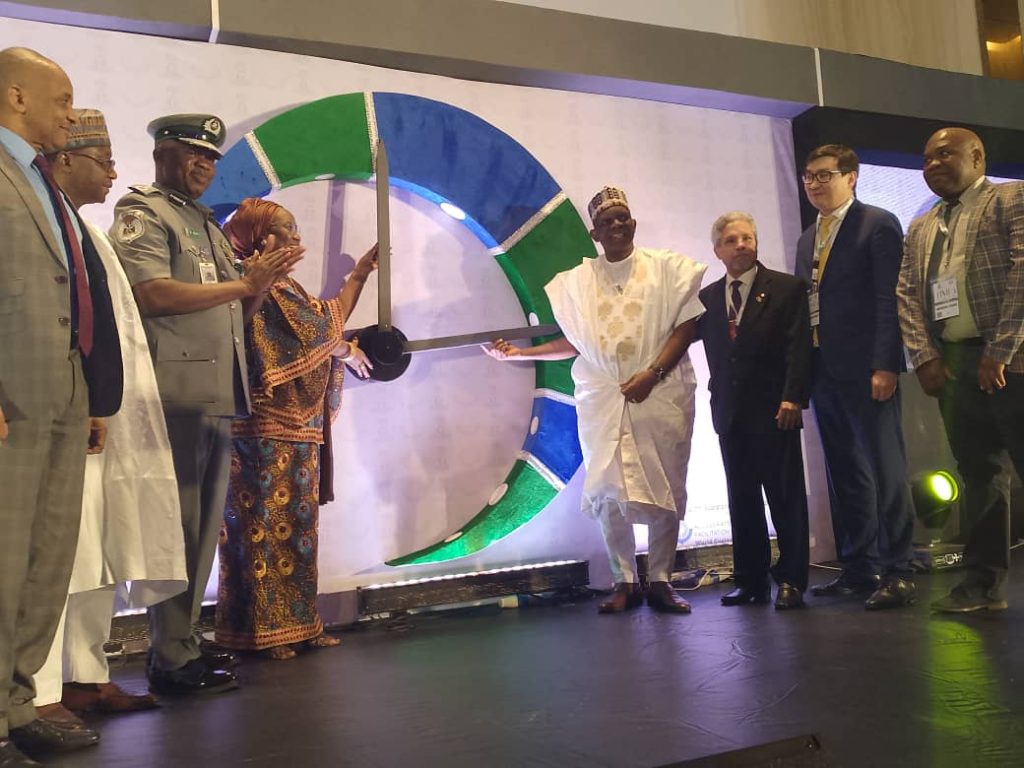
“This initiative represents a critical step in our ongoing efforts to optimize the trading experience and customs operations in Nigeria. It is a strategic endeavor aimed at improving how we facilitate trade, ensuring alignment with international best practices, and contributing substantially to national development. TRS plays a crucial role in assessing and enhancing trade facilitation by providing detailed insights into the efficiency of our processes.
“Our dynamic and rapidly changing environment requires swift and adaptable responses to the needs as they arise. Adopting a scientific and data driven approach is paramount not only for customs administrations but also for all stakeholders involved in international trade. With the complexities of modern
trade, traditional evaluation methods often fall short in accurately identifying
bottlenecks and inefficiencies across the entire trading environment.
“The TRS methodology offers a systematic and precise analysis, enabling us to identify areas for improvement with accuracy. This scientific approach enhances the credibility and reliability of our findings, ensuring that efforts to optimize trade facilitation are targeted and effective. Embracing these methodologies allows stakeholders to collaboratively work towards enhancing trade efficiency and promoting broader economic development.
“In response to the dynamic demands of our environment, fostering cooperation between Customs administrations (C2C) and Customs to Business (C2B) interactions is paramount. The WCO provides invaluable platforms for such collaboration, offering capacity building, technical assistance, and best practice sharing. With the expertise of our colleagues present, we are well equipped to support the TRS effectively.
“Reflecting on the historical implementation of TRS in Nigeria adds depth to our understanding of its significance. In 2010, the Nigeria Customs Service (NCS) underwent a comprehensive TRS conducted by the USAID MARKETS
Project, focusing on the Apapa Port and Seme Border. This study employed
standardized methodologies and precise time analyses, offering crucial insights into our operational dynamics. Subsequently, some twenty cross-cutting recommendations were made, including the development of an Authorized Economic Operator (AEO) program, implementation of a Single Window system, purchase of additional cargo handling equipment, infrastructure repairs at the ports, streamlining of terminal yard logistics, enforcement of truck safety standards, use of more scanners, implementation of paperless clearance, and imposition of penalties to deter non-compliance.
A second attempt was made in 2018 to conduct another TRS exercise; however, it was unsuccessful due to the lack of proper collaboration among the relevant agencies. Today’s exercise builds on the lessons learned from both the 2010 and 2018 attempts. We have made significant progress since then, including the implementation of paperless clearance and advancements in our AEO programs. Additionally, provisions under the new Customs Act now speak to the imposition of penalties to deter non-compliance.
The need for greater collaboration, underscored by the presence of three
Ministers today, is a crucial lesson learned from past exercises.
Recommendations such as the implementation of a Single Window have been longstanding, emphasizing the importance of collaborative efforts. Today’s TRS promises to take a different dimension, aligned with the President Bola Ahmed Tinubu led Administration policy targets aimed at promoting effectiveness and efficiency in all fronts, including trade facilitation and economic reform.
Several other measures have been put in place ahead of today’s exercise, including the revitalization of the National Trade Facilitation Committee (NTFC) and extensive stakeholder engagements resulting in the signing of the Lagos Continental Declaration Document. We are pleased to note the timely implementation of these activities, with further evaluations scheduled at the end of the first quarter of this year.
NCS is keenly aware of the impact of its operational environment on its activities, which is why we are committed to exploring ways to alleviate difficulties faced by citizens. Through a deliberate effort to identify bottlenecks, we aim to gain a better understanding of the measures needed to resolve these issues. By prioritizing efficiency and transparency, we endeavour to enhance the overall experience for traders and stakeholders involved in international trade.
The launch of the TRS in Lagos today underscores our commitment to
improving customs operations and trade facilitation in Nigeria. In addition to TRS, the NCS is deploying the AEO program, Advanced Ruling, and establishing a Customs Laboratory as part of its ongoing efforts to facilitate trade and improve government revenue. These initiatives are supported by the WCO, further emphasizing our dedication to enhancing trade efficiency and promoting economic growth and national development through collaboration, innovation, and strategic measures.
We extend our sincere gratitude to the Secretary General (SG) of the WCO for the invaluable support, provision of resources, and expertise in advancing these initiatives.
Involvement with the WCO has been instrumental in ensuring the success of our efforts to modernize customs operations and enhance trade facilitation in Nigeria. With their guidance and assistance, we are confident in our
ability to effectively implement these strategic measures and achieve our shared goals of promoting efficient and transparent trade practices for the benefit of our nation and its stakeholders. I also wish to extend our heartfelt appreciation to the heads of Ministries, Departments, and Agencies (MDAs) involved in the NTFC for their support”.
The Minister of Industry, Trade and Investment, Dr. Mrs Doris Uzoka-Anite said the launch of the TRS will go a long way in promoting trade.
Uzoka-Anite said it was the determination of President Ahmed Bola Tinubu to check bottlenecks in trade, adding that TRS will be beneficial to businesses.
She added that considering issues of trade regulation violation such as under-declaration and concealment, TRS will be useful.
The Minister urged the Customs to always focus more on trade facilitation which according to her will increase volume of trade and therefore revenue generation.
In his goodwill message, the Director General of the Nigerian Maritime Administration and Safety Agency (NIMASA), Dr. Bashir Jamoh, said it is good the Customs is committed to changing the narratives.
Jamoh recalled that time without number, the blame had been pushed to the doorsteps of Customs even when all are involved in the delay experienced at the ports.
He said that it is for all to join hands with the Customs to address whatever bottlenecks at the ports.
According to him, this will make the country better, adding that the issue at the ports should be handled the same way like the football experience.
In his speech, the Minister of Marine and Blue Economy, Mr Adegbeyega Oyetola, described TRS as a unique analysis to enhance Customs process for efficiency.
Oyetola who was represented by the Executive Secretary, Nigerian Shippers’ Council (NCS), Barr Pius Akutah, said the TRS will streamline customs procedures and improve clearance.
Noting that the tool will reduce barriers in trade facilitation, Oyetola said it will lead to improving on ship on ship turnaround time.
He commended the WCO for the TRS and the Customs for adopting the technology to improve on trade efficiency.
Among the benefits of the TRS are:”To improve and strengthen the efficiency of Customs administration and other government agencies; Allows Customs and other stakeholders to explore synergies; Creates better conditions for accelerating the international movement of cargo subject to import, export, transit, or any other customs regime related to the clearance and release of cargo; Collaboration with stakeholders to enhance the supply chain”
Delivering a keynote speech, the Minister of Finance Mr. Wale Edun, represented by the Permanent Secretary of the ministry, Mrs. Lydia Shehu Jafiya, said that the Nigeria Customs wouldn’t have thought about a better time than now to implement this TRS for obvious reasons. This would come with very great benefits to our nation. It will bring about value for our money, competitiveness and that will lead to the growth of our economy.
The launching which had in attendance three Ministers, heads of agencies, heads of financial institutions, , top guns in the port business, Customs Area Comptroller of various zones around Lagos, terminals operators, licensed customs agents, freight forwarders, as well as officials from the World Customs Organization.



